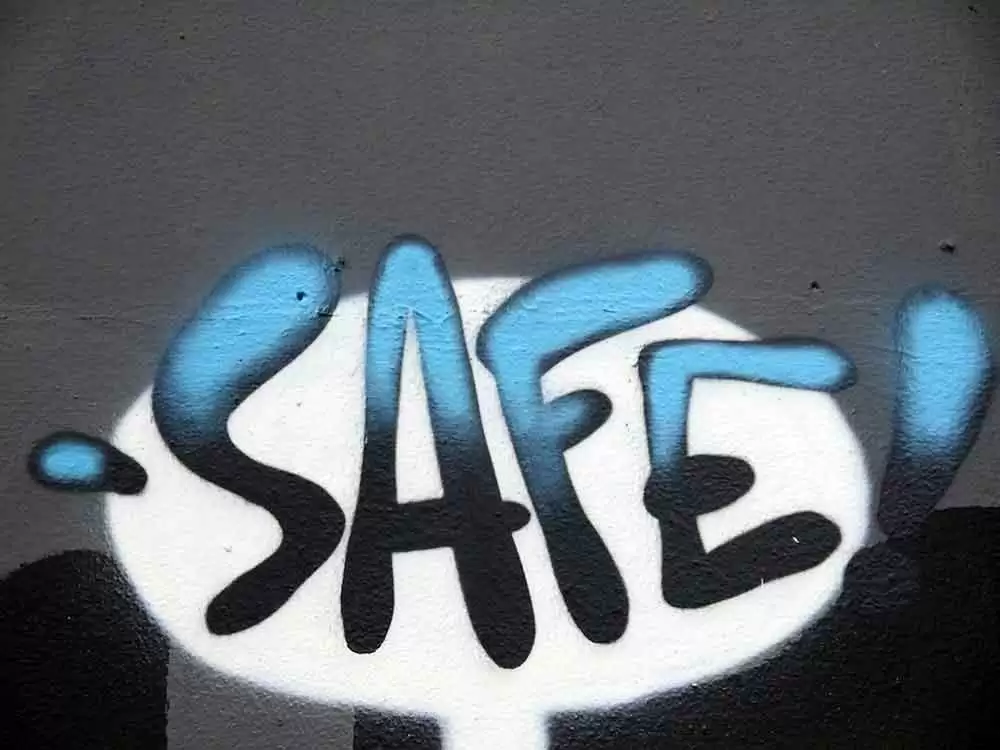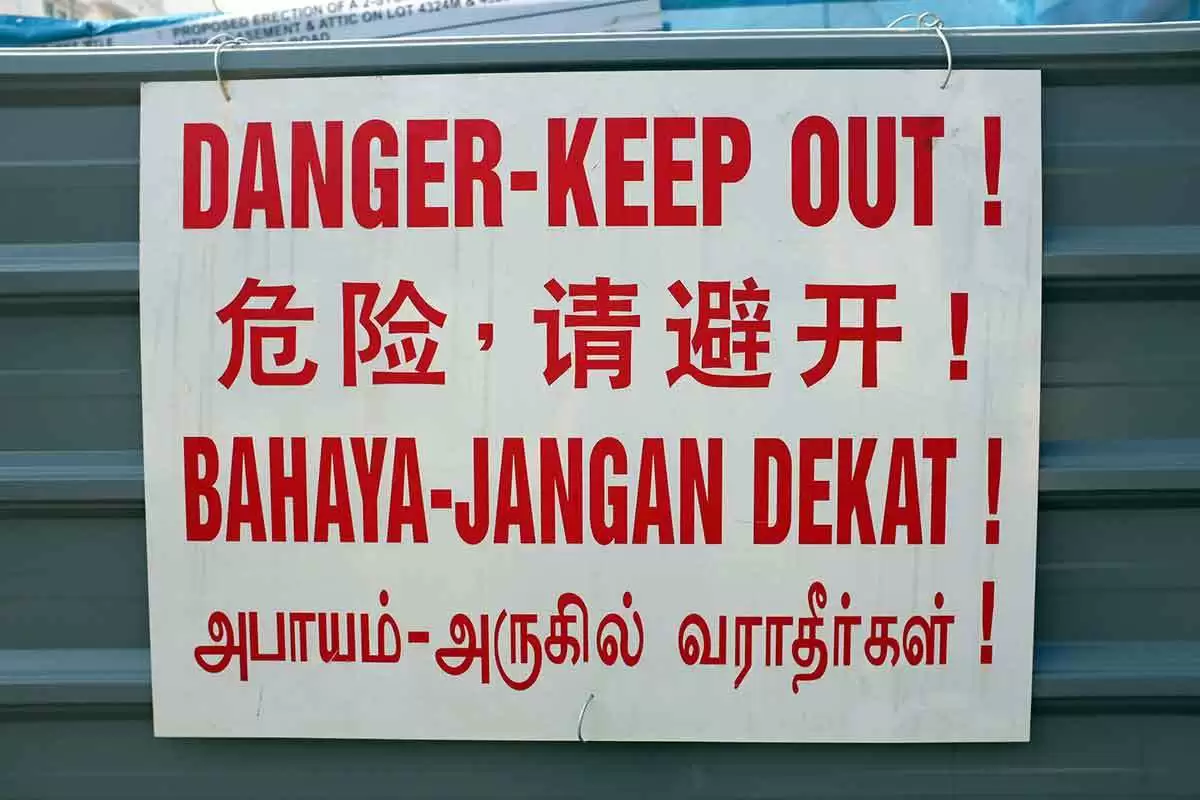
Celiac.com 11/10/2022 - If you're new to this whole celiac disease and gluten-free eating thing, then this is your welcome-to-the-club pack of sorts from Celiac.com.
While eating gluten-free can improve your health, I must emphasize that it is not recommended to attempt a gluten-free diet without a doctor's supervision, as there are many potential health risks involved with making drastic changes to your diet. Talking beforehand with a qualified doctor and/or nutritionist can help you make a smoother transition to a gluten-free diet.
Celiac.com Sponsor (A12):
Whether you've been officially diagnosed or diagnosed yourself, welcome. You made it to the best most comprehensive source of information about celiac disease and living gluten-free. You are among a friendly and well-informed community that is looking out for you.
If you suspect gluten-intolerance to be the culprit for your health problems, get examined by a doctor and get tested for celiac disease before initiating a gluten-free diet.
Celiac Testing
You will need to consume gluten for at least 6-8 weeks before blood tests, and 2 weeks before a biopsy for celiac disease in order to get accurate results. The FDA recently approved a new test for celiac disease, so be sure to consult with your doctor regarding the best testing methods.
Prescription: A Gluten-Free Diet
Now that you have your celiac diagnosis, it's time to eliminate gluten from your diet. The good news is that for most celiacs who begin a gluten-free diet for the first time, the healing starts fairly soon, and many of the worst symptoms may go away within weeks. For most people on a gluten-free diet, full gut healing takes three to six month after starting a gluten-free diet, though it can take 18 months or longer in some cases. There is research that shows that L-glutamine (amino acid) and collagen supplements may speed up gut healing, but from now on be sure that any supplements you take are labelled "gluten-free."
This guide will help you make the transition to a gluten-free diet with confidence. The following information will help to guide you as you look to get started on your gluten-free journey.
We want to emphasize that this is only a guide, and you will need to do your own research and consult with your doctor for more detailed information about the gluten-free diet. It is also a great idea to get involved and ask questions in our forum, or join other online or local support groups. Online Celiac disease support groups will have members who understand what you are going through, and who can help direct you to beneficial resources.
Create New Habits
To begin, if you are accustomed to doing things your own way, you will have to throw out many of your old habits. To avoid gluten poisoning you must keep all gluten away from your mouth. You will need to evaluate everything you ingest very carefully. Gluten can come in a variety of unexpected ways, including a kiss from a loved one, and any gluten that comes into contact with your mouth is a potential source of contamination. Cross-contamination can occur when a meal is prepared on cooking equipment shared with gluten-containing foods. It can also come from touching anything that has come into contact with gluten. It is therefore important to gluten-proof your house and to keep everything you eat separate from gluten and gluten residue. If you eat at restaurants, it is important to only eat at places that you know are safe. To help you avoid accidental gluten ingestion, please follow your instincts and use the following guidelines and avoid potential health hazards. Please remember that these are only guidelines--if you still have questions, please consult with a medical professional.
Check Celiac.com for Articles on Celiac Disease and Gluten-Free Living
Celiac.com provides free access to articles, recipes, medical studies and information about celiac disease and gluten-free living. Moreover, we've got great lists of gluten-free brands and products. We've also got some great lists, like lists of brands gluten-free ice cream, Halloween candy, Easter & Passover candy, snacks, beers, wines and liquors, and much more.
What does "Gluten-Free" Actually Mean?
Since gluten is found in wheat, rye and barley, it is obvious that you will need to avoid these grains. Less obvious however, are the myriad of products that contain gluten as a hidden ingredient. The Food and Drug Administration (FDA) recently regulated the use of "gluten-free" on a food label, and there was already an FDA regulation that requires manufacturers to declare wheat if it is used as an ingredient in a product. Products that don't use "gluten-free" on their label unfortunately don't have to disclose ingredients that are made from barley or rye, which requires you to learn to read and understand ingredient labels. Many additives, natural or artificial, can contain gluten. Sometimes companies label products as "gluten-free" or the ingredients are naturally gluten-free, but the product may have be contaminated if it was manufactured on shared equipment. You will have to decide if you want to include such products in your diet. It is also important to remember, for reasons just mentioned, that “wheat-free” does not mean “gluten-free.”
Distilled Alcohols
According to the FDA, all distilled alcoholic spirits are gluten-free, including those distilled from grain ingredients.
Distilled Vinegars
Vinegar distilled from grains is also gluten-free.
Batch Testing:
According to current FDA proposals, products testing at less than 20 parts per million (PPM) for gluten will likely be allowed to be labeled "gluten-free," and, according to them, are considered safe for people with gluten-intolerance or celiac disease. There are also several organizations that offer "gluten-free certification" for companies who follow their guidelines and batch test their products to below 10 PPM, and if you are very sensitive you may want to seek out products that are certified gluten-free. Check out the link below for more information on gluten-free certification and labeling:
Gluten-Free Shopping
Shopping will likely take much longer for you than it used to. Don't rush. It is important to read all ingredients carefully. If you are in a hurry, you run the risk of overlooking a key ingredient that might contain gluten. I find it helpful to plan my meals in advance. There is nothing worse than coming home from work hungry and realizing that you have nothing to eat (and it isn't like you can go to the first drive-thru you find). So planning my meals on the weekend and doing my shopping in advance, cuts my stress level down considerably and keeps me from going hungry. Check your products against your our safe and forbidden lists below, and contact the manufacturer if you are unsure about something:
- Safe Gluten-Free Food List (Safe Ingredients)
- Forbidden Gluten-Free Food List (Unsafe Ingredients)
- All Distilled Alcohol is Gluten-Free
There are also many products that are naturally gluten-free but are not labeled "gluten-free," and it's important to check all ingredients against our lists and read any allergen warnings.
A Gluten-Free Kitchen
A gluten-free kitchen is very important. If you can have an entirely gluten-free kitchen, that is ideal, but it may not be an option for many households. Either way, it is especially important to keep your kitchen, utensils and food storage areas clean and free of gluten cross-contamination. It is also important to dedicate special kitchen supplies for gluten-free cooking. I bought a new cutting board that is dedicated only to gluten-free cooking. You may also want to have separate kitchen utensils such as sponges, toasters (a dedicated gluten-free toaster is highly recommended), sifters, bread machines, etc. This is especially important if you use utensils that are made of wood or other porous materials that could harbor gluten and possibly contaminate your gluten-free food. If possible use an electric dishwasher to clean your dishes.
If everyone in your household is going gluten-free it is important to clean out and empty all of the gluten products from your kitchen. If you share a kitchen with gluten eating family members, it is a good idea to store their food products separately from your gluten-free products, and to clean off all surfaces before you prepare your gluten-free food. Dedicating and labeling gluten-free cupboards and refrigerator shelves is a great way to start.
Here are some important links that will help you cook gluten-free meals with ease:
Kitchen Checklist - Possible Sources of Contamination:
- Bread-machine
- Toaster
- Sponges & cleaning pads
- All kitchen supplies & utensils (especially wood)
- Colanders
- Cutting boards (especially wood)
- Pans and pots (especially Teflon coated)
- Door handles
- Soaps
For more information on maintaining a safe kitchen environment, click the link below:
Dining Out Gluten-Free
Many celiacs find that it is best to avoid eating out, especially during the healing process. Dining out presents a challenge for most people on a gluten-free diet. Depending on your level of sensitivities, you may have difficulty eating out at all. Even if the restaurant offers a gluten-free menu, it is always important to find out what safety precautions the restaurant uses to avoid cross-contamination, and to make sure all the ingredients in your food are gluten-free. This may require you to modify your order and talking with the wait staff and chef about their kitchen practices. You may also benefit from utilizing a guide to safe restaurants.
As an extra precaution you may want to take AN-PEP enzymes like GliadinX during your meal in case there is cross-contamination in your food. AN-PEP enzymes have been shown in multiple peer-reviewed published studies to break down small amounts of gluten (as you might encounter in a busy restaurant environment) in the stomach, before it reaches your intestines.
A Gluten-Free Bathroom
Believe it or not, your bathroom is another place where you might be getting sick from gluten contamination, and not even know it. There are many products in your bathroom to watch out for as many body products contain wheat and/or hidden gluten ingredients. Most celiacs can use body products without a negative reaction, although some sensitive celiacs and those with dermatitis herpetiformis may experience rashes and other unsavory reactions from gluten in beauty and hygiene products. If you are using face or body products that contain gluten, it is very important not to ingest them. It may be difficult to avoid getting shampoo or makeup in your mouth, so it may make sense to switch out all of your products to gluten-free versions, including gluten-free soap, shampoo, conditioner, face-cleaner, toner, make-up, toothpaste, etc. Using gluten-free beauty and hygiene products will allow you the freedom to worry less about accidental contamination. Many gluten-free body products are not labeled gluten-free, so it is important to read ingredient labels carefully and check with the manufacturer if necessary.
Bathroom Checklist:
- Toothpaste
- Shampoo/conditioner
- Make-up
- Lip-stick, lip-liner, lip-gloss, cosmetics, etc.
- Lotion
- Sunscreen
Gluten-Free Medications (Prescriptions and Supplements)
Most people with celiac disease or gluten-intolerance also suffer from malabsorption and sometimes malnutrition. Your doctor may prescribe pain, anti-inflammatory, digestive or other medications or supplements to help assist with your recovery. It is very important to note that some medications and supplements can contain gluten. Do not assume that just because your doctor knows you have celiac disease or gluten intolerance that the medications or supplements they may prescribe for you are gluten-free. Be your own advocate and read the ingredients and contact your pharmacist and/or the manufacturer and find out if your prescriptions, vitamins and supplements are gluten-free.
You can search this site for prescriptions medications, but will need to know the manufacturer/maker if there is more than one, especially if you use a generic version of the medication:
To see the ingredients you will need to click on the correct version of the medication and maker in the results, then scroll down to "Ingredients and Appearance" and click it, and then look at "Inactive Ingredients," as any gluten ingredients would likely appear there, rather than in the Active Ingredients area.
Additional Concerns
Children with Celiac Disease
Raising children with celiac disease or gluten-intolerance is no easy feat. Your kids will have to deal with immense peer pressure and there will be a great deal of temptation for them to eat gluten-containing foods. Talk to the staff at their school and help them to understand your child's special needs. The more support you have, the better off your child will be.
Pets
Your pets present another source of potential contamination, especially if you have pets that love to smother you with unexpected kisses, sometimes on the mouth. What your pet eats can affect you too. Handling your pet's food, cleaning your pet's dishes and having young celiac children in a house where they may eat dog or cat food are all legitimate concerns. You may want to switch your pets to gluten-free pet food. Many pet foods are now labeled gluten-free, but naturally gluten-free ones should also be safe, so it is important to read all ingredients carefully. There are many grain-free, all natural pet foods available. It is also important to check all other pet products that you come into contact with for hidden gluten ingredients, like shampoos and soaps. It is of course always important to talk to your veterinarian before making any dietary changes for your pet.
Other Food Sensitivities
Most people who begin a gluten-free diet experience almost immediate relief from their symptoms. However, many people experience gluten-like reactions to other foods, and often suspect that their food was contaminated by gluten. As it turns out, many people who experience such reactions may in fact have additional food sensitivities. Some of the most common food sensitivities include, dairy/casein, soy, corn, chicken eggs, sugar, nuts, shell-fish and processed or fatty foods. While many people report that they are able to add these foods back into their diet after they have established a gluten-free diet for a year or more, and after their intestines have had time to heal, some celiacs may not be able to add back all items, and their food intolerance(s) may be lifelong. Keeping a food diary and trying an 'elimination diet' may help determine what additional food sensitivities you may have. Ask your doctor if the elimination diet is right for you.
Food Diary
It is important to keep a food diary, especially when first initiating a gluten-free diet. Making notes of the foods you eat and the reactions you have to the foods you eat, and how you feel that day, can give you more insight as to which foods are hurting you and which foods your body can easily digest.
Final Thoughts
Be Picky
Having a gluten intolerance means taking pride in your body, but not being too proud to say, "no, thank you." Don't worry about appearing too picky to others, you simply can't take care of yourself and worry what others think of you at the same time. You have the right to eat what you want; if something doesn't look, smell or taste right to you, or if you just don't feel right about eating something, don't eat it! It is better to come across as too finicky, than to spend the night in the bathroom or worse yet, the emergency room. Everyone has a different level of gluten sensitivity and you will have to find out through trial and error what works best for you.
Be Prepared
As a former Boy-Scout, my high-school teacher used to always say, "Be prepared". I cannot emphasize enough the importance of this statement. It is important to be prepared and think ahead. Keep gluten-free snacks on hand at all times, because you never know when you are going to get hungry somewhere that doesn't offer gluten-free food. Keep shelf-stable snacks in your car, office, purse, and anywhere you spend time. It is better to have gluten-free snacks on hand, then to get hungry and make a bad decision to eat something you might later regret.
Gluten-Free Quick-Check:
- Read all labels carefully
- Call the manufacturer whenever necessary
- Avoid cross-contamination at all times
- Keep your hands clean
- Check personal-care products for hidden gluten
- Check all vitamins, supplements and RX prescriptions for hidden gluten
- Make sure your pets are gluten-free
- Maintain a food diary
- Join our forum and ask lots of questions
- Rule of thumb-if you think it's possibly contaminated, don't take any chances. It's better to go hungry than to suffer later.
- Above all, trust your body
Below, you will find a list of helpful links to guide you through some of the most basic aspects of living a gluten-free life with celiac disease. As always, celiac.com makes it our mission to offer the best, most scientifically accurate information on celiac disease and gluten-free living.
Additional Resources:
Celiac Disease & Gluten-Free Forum - Ask questions and get answers about gluten-free diet from real people with celiac disease.
Gluten-Free Safe Foods and Ingredients:
Forbidden Foods and Ingredients:
Gluten-Free Alcohol & Beer:
Gluten-Free Wine:
Gluten-Free Halloween Candy & Chocolate:
Gluten-Free Easter Candy & Chocolate:
Anti-Gluten Enzymes:
Celiac Foundation - A great resource, and a great supporter of issues important to people with celiac disease.
https://celiac.org/
Mayo Clinic - An excellent resource for information about celiac disease.
https://www.mayoclinic.org/diseases-conditions/celiac-disease/symptoms-causes/syc-20352220
Harvard University - An excellent resource for information about celiac disease.
https://www.health.harvard.edu/diseases-and-conditions/celiac-disease







Recommended Comments